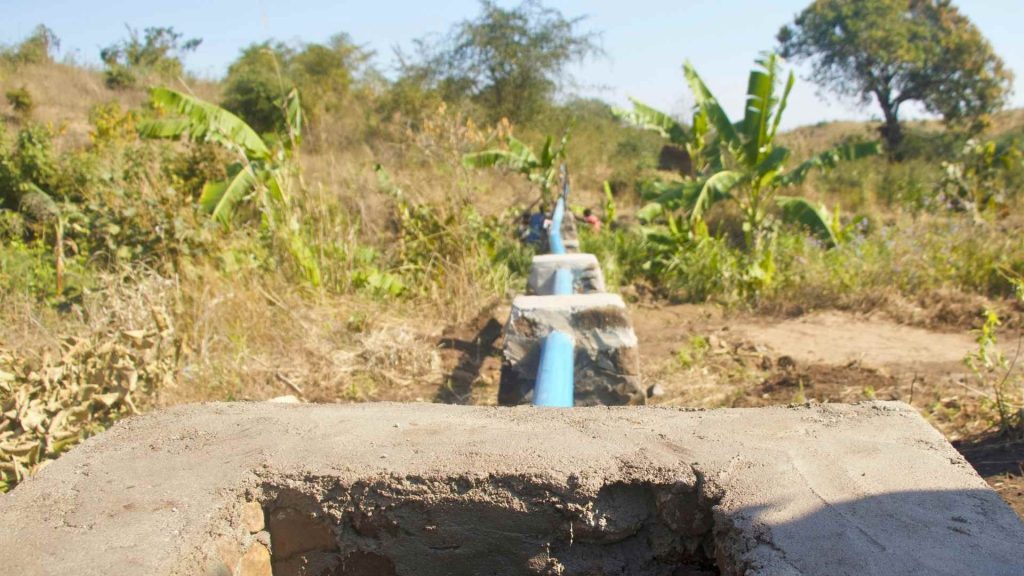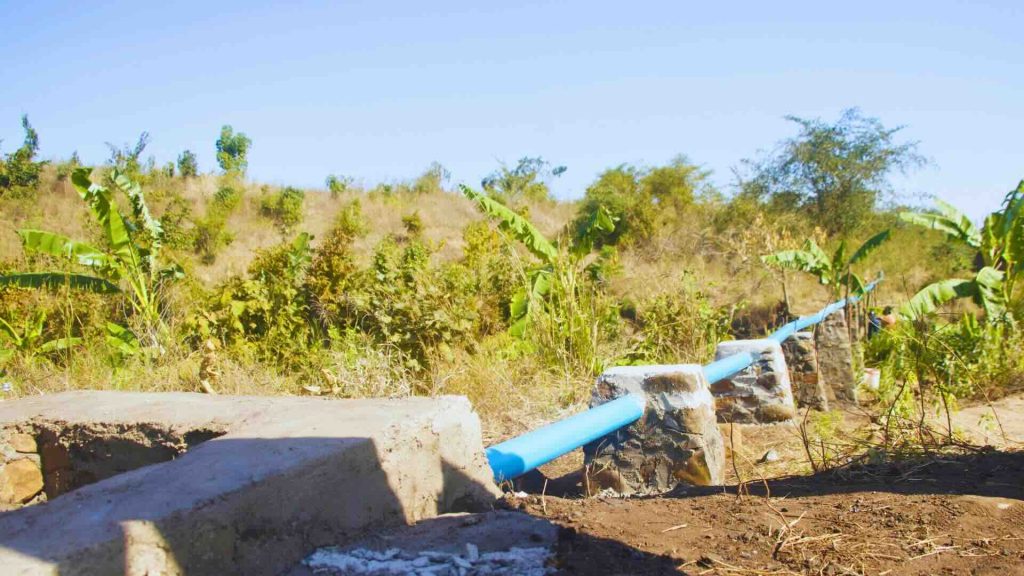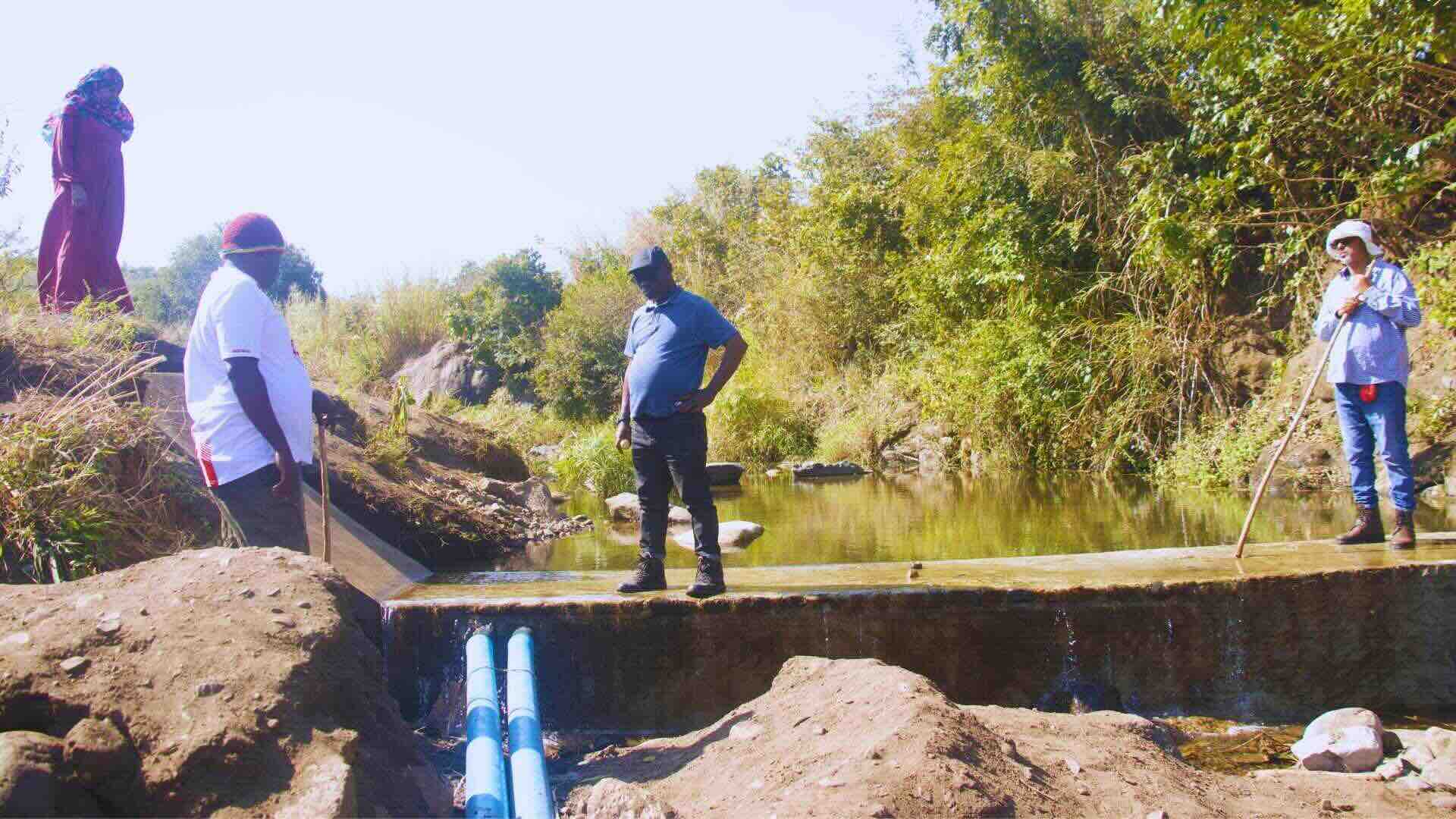Agriculture is the backbone of rural life across Malawi. Families depend on the land for food, income and stability, but without reliable irrigation. Many small farmers are trapped in cycles of low yields and insecurity.
In Kanyola village, Blantyre district, about 50 farmers currently get water from the Sanudzi River using manual methods.
That is why Drop of Compassion is developing the Sunudzi Irrigation Scheme. It is a project designed to bring sustainable irrigation and wider rural development to the region.
The Challenge in Kanyola
At present 50 farmers are cultivating in the area. Most of the farmers use manual methods of irrigation. Our irrigation scheme will help increase the number of farmers to 150. The farming will stretch across 12 hectares of land.
The burden falls disproportionately on women and older children. Many children miss school to help fetch water. While women spend hours each day on physically draining tasks that reduce time for other income generating activities.
Our Solution, Gravity fed Irrigation
The Sunudzi Irrigation Scheme has introduced gravity-fed irrigation to Kanyola. Rather than relying on manual methods, water will flow by gravity from the Sanudzi River through simple pipes to the fields. It is simple, cost effective and sustainable.
With a functioning gravity-fed network in place, farmers will see practical, measurable benefits, such as:
- Save time and energy
- Increase cropped area
- Raise yields and crop reliability
- Boost household income
We project the number of farmers benefiting to grow. We will have at least 150 farmers as irrigable area and productivity expand.

Model for Community Irrigation in Malawi
The Sunudzi project sits within a tested approach to irrigation development. To date, Drop of Compassion has supported 71 irrigation schemes across Malawi, directly benefiting over 65,000 people. These schemes form a growing network that demonstrates how community led, low-energy irrigation can scale across regions and strengthen national agriculture.
Our model focuses on long-term sustainability. Gravity-fed irrigation avoids reliance on fuel or electricity and uses local water resources and terrain to reduce running costs. Where needed, we establish a small maintenance fund and training programme so communities can preserve their investment for years to come.
Expanding Irrigation Projects Across Malawi in 2025
The Sunudzi scheme is about more than improved yields. It restores dignity, creates opportunity and strengthens local communities. When families have reliable harvests they can pay school fees, invest in their homes and set aside savings for off seasons.
These individual gains add up across the community. Regular irrigation supports a wider variety of crops, improves diet diversity and strengthens market supply. So local traders and buyers benefit as well. Importantly, irrigation increases resilience to climate shocks. Having access to water through dry months enables farmers to grow a second crop or maintain production in drought years. It reduces the risk of complete crop failure and food insecurity.

Looking Ahead Expanding Irrigation Projects Across Malawi in 2025
The Sunudzi Irrigation Scheme is one of several new projects we are launching in 2025 to support irrigation development across rural Malawi. Each project is designed to unlock the productive potential of communities, giving farmers practical tools. That helps them to move from survival to growth and foster wider regional development.
By investing in low energy, community managed solutions, we aim to reduce food insecurity and create steady cash opportunities for households. Sunudzi will transform the current 12 hectares into a more productive area, enabling more farmers to cultivate reliably during dry months and across multiple years.
Conclusion
The situation in Kanyola illustrates the barriers farmers face without proper irrigation and the real difference simple, sustainable projects can make. With the Sunudzi Irrigation Scheme, we expect to triple the number of farmers supported as irrigable land and market opportunities expand.
Change begins with water and in Kanyola, that change is already taking shape.

